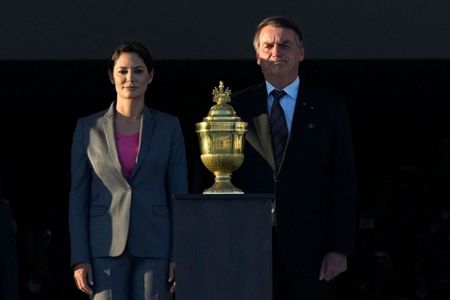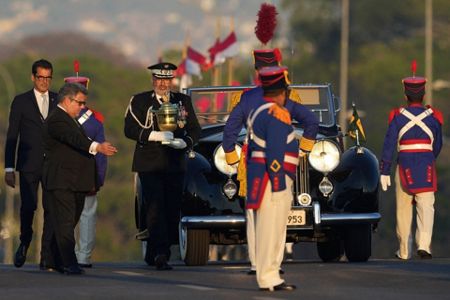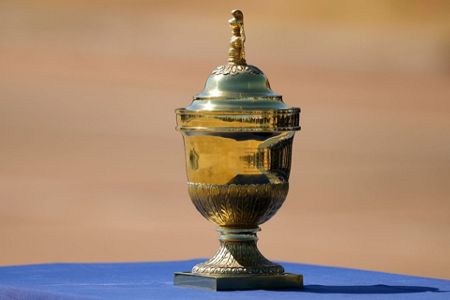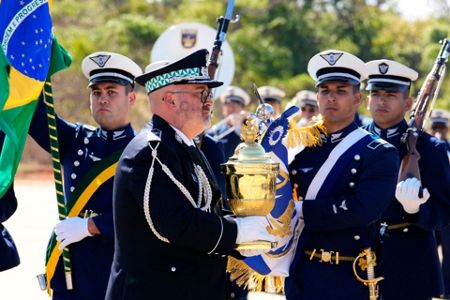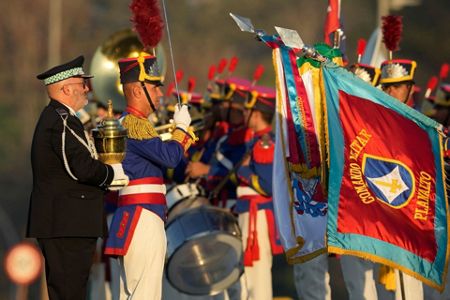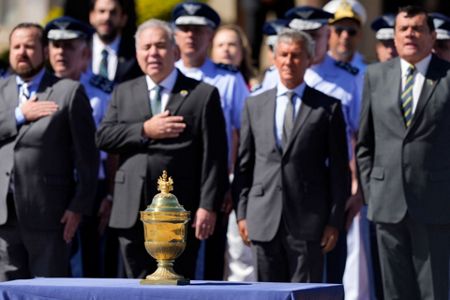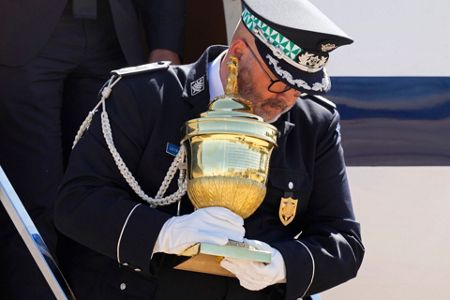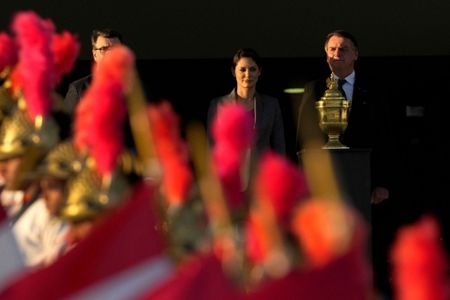SAO PAULO (AP) — The embalmed heart of the emperor who declared Brazil's independence returned to the South American nation Tuesday for ceremonies worthy of a head of state as the country prepares to celebrate its bicentennial.
The heart of Pedro I, contained in a golden reliquary, arrived from Portugal on Monday in a Brazilian air force plane. It was carried up the ramp of the presidential palace in Brasiliaon Tuesday afternoon — in line with procedures afforded to visiting leaders on official state visits.
President Jair Bolsonaro welcomed the reliquary as cannon fired a salute in Brazil's capital. Cabinet ministers and first lady Michelle Bolsonaro also attended a quick ceremony in honor of Brazil's bicentennial.
Brazilians will be able to view the reliquary in a foreign ministry building.
Pedro I declared Brazil's independence in 1822 and imperial rule lasted until 1889, when the monarchy gave way to a republic. Pedro I died 187 years ago and, per his will, his heart was transported to the Portuguese city of Porto, where it is kept in a glass vase with formaldehyde at the Church of Our Lady of Lapa. He is known in Portugal as Pedro IV.
Lawmaker Luiz Philippe de Orleans e Bragança, a member of Brazil’s former royal family and a staunch supporter of Bolsonaro, said the idea to bring the emperor's heart came from one of the president's informal advisers.
“We lost a little of our reference of Brazil’s founders, what they represented, what they thought, what they hoped for Brazil. It is very important to bring some of that back,” Bragança said in an interview with radio station Jovem Pan on Monday. Bringing the heart to Brazil "was a demand of a part of our society, which wants a historical redemption.”
Brazil’s struggle for independence was unlike the bloody affairs of other Latin American nations. While there was some fighting, mostly it was resolved through mediation of other nations and Brazil’s payment of reparations to Portugal. The European nation finally recognized Brazilian statehood in 1825.
Some Brazilians who seek to honor the monarchy's legacy are allied with Bolsonaro, who is running for reelection. His critics have said that bringing Pedro I's heart to Brazil represents a nod to such people and is an example of the president playing politics with the bicentennial. He has repeatedly called for his supporters to flood the streets for Independence Day on Sept. 7, and political analysts have expressed concern about possible violence.
“The coming of Peter I’s heart to Brazil will be an opportunity for the Brazilian people to pay a tribute to a central figure of Brazil’s independence process,” Brazil's Foreign Ministry said in a statement.
The statement said the heart will be returned to Portugal on Sept. 8. The government didn't disclose how much the transportation of the heart cost public coffers.
Copyright 2022 The Associated Press. All rights reserved. This material may not be published, broadcast, rewritten or redistributed without permission.





